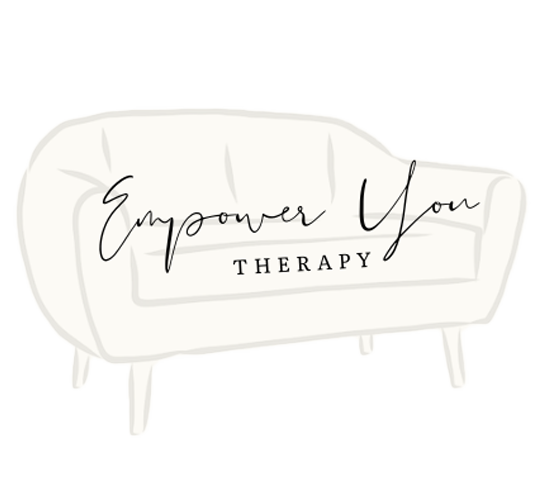Grief Counseling in Salt Lake City, Utah
Written By: Natalie Stringham
Receiving a breast cancer diagnosis can feel like a devastating blow, bringing with it a tidal wave of overwhelming emotions such as fear, sadness, and uncertainty. It’s not just the shock of the diagnosis itself; many individuals find themselves navigating the turbulent waters of grief over what they perceive as a loss of normalcy, health, and even a part of their identity. One minute, you’re planning a fun outing, and the next, you’re faced with questions about your future that are way too heavy for everyday conversation. But understanding this emotional journey is crucial as you work through this challenging time, and there are ways to help you feel supported along the way such as with participating in grief counseling in Salt Lake City.
With receiving a breast cancer diagnosis and all that it encompasses, you may notice several common mental health diagnoses that may arise as you navigate this challenging journey. Many individuals experience anxiety, which shows up as excessive worry about treatment outcomes, recurrence of cancer, or the impact on loved ones. Depression is also prevalent, manifesting as feelings of sadness, hopelessness, or a loss of interest in activities that once brought joy. Additionally, some may encounter post-traumatic stress disorder (PTSD), which can lead to flashbacks, nightmares, or heightened emotional responses to reminders of the diagnosis and medical treatment. The uncertainty of the journey can also contribute to adjustment disorders, where individuals struggle to adapt to their new reality, leading to increased stress and emotional turmoil. It’s essential to recognize that experiencing these mental health challenges is common and valid, as your emotional response is a natural reaction to such significant life changes.
- Common Emotional Reactions: Receiving a breast cancer diagnosis can lead to a range of mental health challenges, including anxiety, depression, PTSD, and adjustment disorders, making it essential to recognize that these feelings are valid and common.
- Impact of Grief: The emotional toll of grief can manifest in various ways, causing confusion, self-doubt, and a profound sense of loss concerning health and identity, which may create feelings of isolation.
- Importance of Support: Connecting with support networks, such as friends, family, or support groups, can provide immense comfort and help alleviate feelings of isolation during this challenging journey.
- Self-Care Strategies: Engaging in self-care practices such as mindfulness, journaling, and gentle physical activities can significantly improve emotional well-being and help manage the symptoms associated with a breast cancer diagnosis.
- Seeking Professional Help: It’s crucial to seek professional help when navigating grief and trauma; grief counseling in Salt Lake City can provide specialized support and guidance to help you process your feelings and find effective coping strategies.
Acknowledge Your Feelings
The first step in managing grief after a breast cancer diagnosis is to allow yourself to feel what you need to feel. It’s completely normal to experience a mix of emotions, from sadness and anger to confusion and fear. There may be days when it feels like your emotions are running the show, and you’re just a bystander trying to figure out what’s happening. Recognizing and accepting these feelings can be a powerful way to begin processing your grief. Acknowledging your feelings promotes self-understanding and facilitates emotional processing, allowing you to confront and manage your feelings constructively. This awareness not only reduces feelings of isolation but also empowers you to communicate effectively with others and fosters personal growth and resilience in navigating future challenges. It’s okay to cry, feel lost, or question everything about your life and future. Remember, this is a vital part of the healing journey, and you don’t have to face these feelings alone.
Seek Support Networks
Connecting with others can be incredibly beneficial when dealing with the grief caused by a cancer diagnosis. Leaning on family and friends for support can provide comfort, and having heart-to-heart talks about your worries can help lighten the emotional load. Plus, talking to fellow breast cancer survivors can be an extremely helpful—they know exactly what you’re feeling and can share their coping strategies and new ways of thinking. Support groups, either in-person or online, can create a sense of community where you feel understood and less isolated, reminding you that you’re not alone in this.
Engage in Self-Care
In the chaos of treatment and emotional upheaval, it’s essential to prioritize self-care. Take time to indulge in activities that bring you joy or relaxation, whether it’s curling up with a good book, taking a leisurely walk in nature, or diving into your favorite creative projects. Don’t underestimate the power of some pampering! Practical tools like guided imagery apps or calming playlists can be lifesavers when you need to unwind. You might also want to consider incorporating gentle yoga, tai chi, or even aromatherapy into your routine—because who doesn’t want to feel like they’re at a spa while tackling life’s challenges?
Using gentle yoga, tai chi, or aromatherapy into your self-care routine can be incredibly beneficial for managing the big emotions often tied to having breast cancer. Both gentle yoga and tai chi help you slow down and focus on your breath, which can provide a calming effect on your nervous system when anxiety and stress begin to overwhelm you. The movements in those activities encourage you to connect with your body in a nurturing way, allowing you to release some of the physical tension that comes with emotional distress during this challenging time. Aromatherapy can further enhance this experience, creating a soothing atmosphere with essential oils that promote relaxation and emotional balance. By dedicating time to these practices, you may discover a sense of grounding amidst the whirlwind of fear, sadness, and confusion, making it easier to process and navigate the rollercoaster of emotions that comes with your journey.
Additionally, don’t forget the importance of nurturing your emotional health, which can be just as vital as physical well-being. Consider spending time with loved ones who uplift you or engaging in activities that foster connection, such as joining a hobby group or seeking out community events. Laughter can be incredibly healing, so watch your favorite comedies or revisit cherished memories that make you smile. Prioritizing self-care not only helps you cope better during tough times but also reinforces your sense of self-worth and resilience, reminding you that it’s okay to take time for yourself amidst the challenges. Remember, nurturing your physical, emotional, and mental health is crucial as you navigate your diagnosis and the grief that accompanies it.
At-Home Coping Strategies for Mental Health
In addition to seeking support from those around you and nurturing yourself through self-care, there are several effective strategies you can practice at home to address the common mental health symptoms related to getting a breast cancer diagnosis and enduring the associated medical treatment. Consider establishing a daily routine that includes time for relaxation and mindfulness. Practices like meditation, deep breathing exercises, or even gentle stretching can help reduce anxiety and ground you in the present moment.
Engaging in creative outlets, such as painting, writing, or gardening, can also serve as a form of self-expression and provide a much-needed emotional release. Journaling your thoughts and feelings can help clarify your emotions while also serving as a therapeutic tool for processing your experiences. Additionally, prioritizing regular physical activity, even in small doses, can significantly boost your mood and overall well-being.
It’s important to note that it’s okay to say no to social obligations or situations that feel overwhelming. Give yourself the space you need to grieve without additional pressure.
Remember, it’s okay to lean into your feelings of grief and uncertainty, but taking proactive steps to care for yourself can help bring a sense of normalcy back into your life amidst the upheaval.
Consider Professional Help
The emotional complexities of a breast cancer diagnosis can feel overwhelming and too heavy to bear alone. That’s where meeting with a therapist in Draper or in Utah in general can become a vital ally on your healing journey. You deserve a safe space where you can openly explore your feelings—where you can navigate your grief, fear, and anxiety without judgment. A caring therapist in Draper can help you understand the trauma you’re experiencing, allowing you to express the feelings that weigh on your heart, whether it’s frustration about your diagnosis, sadness about body changes, or the fear of what lies ahead.
The trauma that comes with navigating breast cancer can impact every aspect of your life—from the physical challenges of treatment to the emotional toll of adjusting your body image and the constant worry about recurrence. Distressing memories might include moments in the doctor’s office when you received your diagnosis, the fear and uncertainty during treatment sessions, or the anxiety-filled nights spent worrying about the future. You may also experience grief related to the loss of your previous sense of self and the lifestyle you once had. You may feel vulnerable and out of control, and that’s completely understandable. Engaging in grief counseling in Salt Lake City can provide specialized support to help you process these overwhelming emotions. Techniques like Eye Movement Desensitization and Reprocessing (EMDR) can help you address those distressing memories, while Internal Family Systems (IFS) therapy will allow you to explore the different parts of yourself that are struggling, such as the part that feels grief for your former self and life or the part that fears the unknown. Together, we can work to lighten that emotional load and help you reclaim a sense of agency and purpose in your life. You don’t have to walk this journey alone; support is here for you.
Embrace the Journey
Coping with grief after a breast cancer diagnosis is undoubtedly a challenging journey, but it can also lead to profound personal growth and self-discovery. As you face the complexities of your emotions, remember to be gentle with yourself. Allow yourself the time and space to heal, understanding that it’s perfectly fine to seek help along the way.
Whether you lean on support networks, indulge in self-care, or work with a therapist in Draper, every step you take can bring you closer to finding peace and acceptance in your new reality. As you navigate this journey, know that healing is possible, and brighter days are ahead. You deserve to feel supported, understood, and empowered as you cope with the changes this diagnosis brings. You’ve got this!
Therapist Draper
Therapist Draper. Counseling in Draper Utah, Counseling Draper







